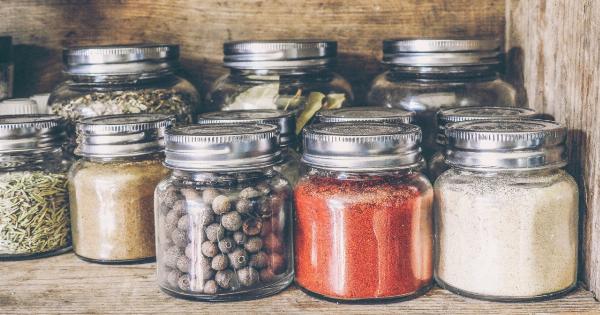Bowel cancer is a disease that affects the large intestine. Also known as colorectal cancer, it is the third most common cancer in the world.
Although there is no sure way to prevent it, there are certain things you can do to lower your risk, including eating a healthy diet. Here are 30 vegetables that may help lower the risk of bowel cancer.
1. Broccoli
Broccoli is a cruciferous vegetable that is loaded with antioxidants and minerals that help to carry out the body’s detoxification processes. It also contains sulforaphane, which has been shown to have cancer-fighting properties.
2. Red and yellow bell peppers
Bell peppers are rich in carotenoids and vitamin C, both of which have anti-inflammatory properties. They also contain lycopene, which has been found to reduce the risk of certain cancers, including bowel cancer.
3. Spinach
Spinach is high in fiber, which helps to keep the digestive system healthy. It is also rich in vitamins and minerals, including vitamin K, which plays a role in bone health and blood clotting.
4. Onion
Onions contain quercetin, a flavonoid that may help to reduce the risk of certain cancers. They are also high in antioxidants and sulfur compounds, which may help to protect against cellular damage.
5. Carrots
Carrots are loaded with beta-carotene, which has been shown to have anti-cancer properties. They are also high in fiber, which helps to promote digestive health.
6. Kale
Kale is a cruciferous vegetable that is rich in vitamins A, C and K, as well as fiber and calcium. It also contains sulforaphane, which may help to reduce the risk of certain cancers.
7. Tomatoes
Tomatoes are loaded with lycopene, a powerful antioxidant that has been shown to have anti-cancer properties. They are also a good source of vitamin C and potassium.
8. Garlic
Garlic contains allicin, a compound that has been shown to have anti-cancer properties. It is also rich in sulfur compounds, which may help to protect against cellular damage and reduce the risk of certain cancers.
9. Green peas
Green peas are a good source of vitamins A, C and K, as well as fiber and protein. They also contain lutein and zeaxanthin, two carotenoids that have been found to reduce the risk of certain cancers.
10. Asparagus
Asparagus is loaded with antioxidants and minerals, including vitamin C, vitamin E, folate and potassium. It is also a good source of fiber, which helps to promote digestive health.
11. Beetroot
Beetroot is high in antioxidants and minerals, including potassium, magnesium and iron. It also contains betaine, a compound that may help to reduce the risk of certain cancers.
12. Cabbage
Cabbage is a cruciferous vegetable that is loaded with antioxidants and fiber. It also contains glucosinolates, compounds that may help to reduce the risk of certain cancers.
13. Brussels sprouts
Brussels sprouts are a cruciferous vegetable that is loaded with vitamins and minerals. They also contain sulforaphane, a compound that has been shown to have anti-cancer properties.
14. Sweet potatoes
Sweet potatoes are a good source of beta-carotene, vitamin C and fiber. They also contain anthocyanins, compounds that may help to reduce the risk of certain cancers.
15. Cauliflower
Cauliflower is a cruciferous vegetable that is high in fiber and antioxidants. It also contains glucosinolates, which have been found to reduce the risk of certain cancers.
16. Mushrooms
Mushrooms are a good source of antioxidants and minerals, including selenium and copper. They also contain polysaccharides, compounds that may help to reduce the risk of certain cancers.
17. Eggplant
Eggplant is high in fiber and antioxidants, including anthocyanins. It also contains nasunin, a compound that may help to protect against cellular damage.
18. Radish
Radish is rich in vitamins and minerals, including vitamin C and potassium. It also contains isothiocyanates, compounds that may help to reduce the risk of certain cancers.
19. Zucchini
Zucchini is high in fiber and antioxidants, including carotenoids and vitamin C. It also contains polysaccharides, compounds that may help to reduce the risk of certain cancers.
20. Swiss chard
Swiss chard is loaded with vitamins and minerals, including vitamin K, magnesium and potassium. It is also a good source of fiber, which helps to promote digestive health.
21. Parsnip
Parsnip is high in fiber and antioxidants, including polyacetylenes. It also contains vitamin C and potassium, which help to promote overall health.
22. Cucumber
Cucumber is a good source of vitamins and minerals, including vitamin K and potassium. It also contains lignans, compounds that may help to reduce the risk of certain cancers.
23. Leeks
Leeks are loaded with vitamins and minerals, including vitamin K, vitamin C and potassium. They are also a good source of fiber, which helps to promote digestive health.
24. Okra
Okra is high in fiber and antioxidants, including vitamin C and polyphenols. It also contains mucilage, a compound that may help to reduce the risk of certain cancers.
25. Turnip greens
Turnip greens are loaded with vitamins and minerals, including vitamin K, vitamin C and calcium. They are also a good source of fiber, which helps to promote digestive health.
26. Celery
Celery is a good source of vitamins and minerals, including vitamin C and potassium. It also contains apigenin, a compound that may help to reduce the risk of certain cancers.
27. Corn
Corn is high in fiber and antioxidants, including lutein and zeaxanthin. It also contains ferulic acid, a compound that may help to reduce the risk of certain cancers.
28. Artichoke
Artichoke is loaded with vitamins and minerals, including vitamin C, vitamin K and folate. It is also a good source of fiber, which helps to promote digestive health.
29. Turnip
Turnip is high in fiber and antioxidants, including vitamin C and carotenoids. It also contains glucosinolates, which have been found to reduce the risk of certain cancers.
30. Peppers
Peppers are a good source of vitamins and minerals, including vitamin C and potassium. They also contain capsaicin, a compound that may help to reduce the risk of certain cancers.






























